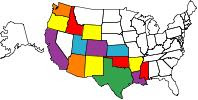.
Origin of Easter
“Where did Easter and its customs come from? The Bible doesn’t mention rabbits or eggs or sunrise services. So what is the origin of Easter?
 What is the origin of Easter?
What is the origin of Easter?
Since Easter is one of the most renowned holidays in the Christian world, why should we be concerned about the origin of Easter?
For centuries, questions have arisen as to the relationship between bunnies and painted eggs and the resurrection of Jesus Christ. The truth of the matter is that Easter has its roots in ancient paganism and polytheism.
The origin of Easter
According to William E. Vine, “The term ‘Easter’ is not of Christian origin. It is another form of Astarte, one of the titles of the Chaldean goddess, the queen of heaven. The festival of Pasch [Passover] held by Christians in post-apostolic times was a continuation of the Jewish feast. … From this Pasch the pagan festival of ‘Easter’ was quite distinct and was introduced into the apostate Western religion, as part of the attempt to adapt pagan festivals to Christianity” (Vine’s Complete Expository Dictionary of Old and New Testament Words, 1997, “Easter”).
Another source states: “As recounted by the English monk Bede, the 7th-8th century ‘father of English history,’ the former pagans in England called April, or the month marking Jesus’s resurrection, ‘Ēosturmōnaþ’—Old English for the ‘Month of Ēostre.’
“According to Bede in his ‘De temporum ratione’ (‘The Reckoning of Time’), the Christian holiday ‘was called after a goddess of theirs named Ēostre, in whose honor feasts were celebrated in that month.’
“Ēostre is variously depicted by scholars as a fertility goddess and a goddess of dawn and light. The dawn connection could explain a linguistic link between Ēostre and the word ‘east.’
“An academic and a Christian missionary, Bede’s reference to Ēostre (or Ostara) is textually unique, to the extent that many throughout the centuries have asserted it was fabricated. It was only in the 1950s that archeological evidence was found supporting his claim of such a goddess in England. But recently, work was done at the University of Leicester on place names and their connections to Ēostre, which, arguably, buttress Bede’s version” (“The Pagan Goddess Behind the Holiday of ‘Easter’,” The Times of Israel, April 5, 2015).
Two Catholic reference works are also open about the etymology of the name “Easter”:
- “The word Easter, which comes from the Anglo-Saxon, is a term derived from the pagan goddess of the dawn” (The Catholic Encyclopedia, 1987, p. 177).
- “Etym. Anglo-Saxon Eastre, Teutonic goddess of dawn and spring” (Modern Catholic Dictionary, 1980, p. 175).
Two popular Bible resources, written largely from a Protestant perspective, also note the pagan etymology of “Easter”:
- “The word Easter is of Saxon origin, Eastra, the goddess of spring, in whose honor sacrifices were offered about Passover time each year. By the 8th century Anglo-Saxons had adopted the name to designate the celebration of Christ’s resurrection” (Unger’s Bible Dictionary, 1966, p. 283).
- “The term Easter was derived from the Anglo-Saxon ‘Eostre,’ the name of the goddess of spring. In her honor sacrifices were offered at the time of the vernal equinox. By the 8th cent. the term came to be applied to the anniversary of Christ’s resurrection” (The International Standard Bible Encyclopedia, 1982, Vol. 2, p. 6).
The Ancient History Encyclopedia, in its article on “Easter,” supports this explanation of the origin of the holiday’s name and also adds insight into the origins of the eggs and rabbits associated with the holiday:
“There are two possibilities for the source of the term ‘Easter.’ One is that the name comes from the Saxon fertility goddess Eostre (sometimes spelled Eastre or Ostara). The legend goes that Eostre owned an egg-laying rabbit or hare and the story symbolized fertility and life. In the 8th century CE work De temporum ratione, written by an English monk named Bede, the author claims that, during the month of April, the pagan Anglo-Saxon community used to have feasts to honour Eostre, but that custom had died out by the time of his writing, replaced by the Christian celebration of the resurrection of Jesus. Another accepted origin of the term Easter is that it comes from the German ‘Ostern,’ which comes from the Norse word ‘Eostrus,’ meaning ‘Spring.’
“The pagan holidays of the goddess Eostre (or Ostara) celebrated fertility and new life: The egg symbolized perfection and wholeness in its natural state and the rabbit was a symbol of fertility. For many cultures, the beginning of the spring season was a symbol of rebirth. This relates to the fact that after the darkness of winter, nature gains a new strength that was symbolized as the ascent of life from the realm of darkness to the world of light.”
There are hundreds of other websites that discuss the pagan origin of Easter.
 Should Christians celebrate Easter?
Should Christians celebrate Easter?
So, what is a Christian to do with the knowledge of the pagan origin of Easter? According to the Bible, God does not want His people to follow or seek after pagan customs.
When ancient Israel entered the Promised Land, God warned them not to seek after the teachings and traditions of the nations that once inhabited the land. He said, “Take heed to yourself that you are not ensnared to follow them, after they are destroyed from before you, and that you do not inquire after their gods, saying, ‘How did these nations serve their gods? I also will do likewise.’ You shall not worship the LORD your God in that way; for every abomination to the LORD which He hates they have done to their gods” (Deuteronomy 12:30-32).
Later, Christ told His disciples: “Well did Isaiah prophesy of you hypocrites, as it is written: ‘This people honors Me with their lips, but their heart is far from Me. And in vain they worship Me, teaching as doctrines the commandments of men.’ For laying aside the commandment of God, you hold the tradition of men” (Mark 7:6-8).
Therefore, anything that has pagan origins must be avoided by Christ’s disciples, no matter what the intent or long-standing tradition.
What the Bible tells us to celebrate
It is also important to note that the Bible nowhere tells us to honor the day of Christ’s resurrection. Instead, God established a command that the Passover should be observed annually to honor Christ’s death. Today, Christians are not to participate in the Easter holiday, but rather in the New Testament Passover, which is the memorial of Jesus Christ’s sacrifice for our sins.
In great solemnity, once a year on the 14th day of the first month on the Hebrew calendar (Leviticus 23:4-5), we are to observe the Lord’s Passover. On that special evening, the apostle Paul instructed the members of the Church to partake of the bread, which symbolizes Christ’s body broken (beaten) for us, and to drink of the wine, which symbolizes the New Covenant in His blood (1 Corinthians 11:23-29).
As to Christ’s resurrection, this occurred exactly three days and three nights after His burial (Matthew 12:39-40; Luke 24:46-47). Christ was crucified on a Wednesday afternoon, buried just before sunset, as Thursday was an annual holy day. He was resurrected three days later on Saturday afternoon (the weekly Sabbath) just before sunset. It must also be noted that on the first day of the week, Mary Magdalene had come to the tomb while it was still dark. Christ had already risen—long before sunrise (John 20:1-2).
So, the story of Christ’s resurrection occurring on Easter Sunday morning (as well as rabbits laying eggs) is a polytheistic myth. Instead of observing Easter or any of its customs, Christians are instructed to observe the biblically authorized holy days of God.” From: https://lifehopeandtruth.com/life/plan-of-salvation/holy-days-vs-holidays/origin-of-easter/
You can learn more in the section “Holy Days vs. Holidays.”
_______
Should Christians Celebrate Passover?
 Christ’s command: “Do this in remembrance of Me”
Christ’s command: “Do this in remembrance of Me”
“Should Christians pass over the annual Passover or celebrate it? What are God’s instructions about this often-overlooked festival observed by the early Church?
In much of the religious world, adherents search for meaning, purpose and validation in a familiar cadence of religious festivals.
This concept is common in the professing Christian world as well. Various sects and denominations have adopted a variety of festivals, often borrowed from ancient and pagan cultures. Long ago they affixed biblical or moral themes and proclaimed these days Christian.
Commonly celebrated festivals, ranging from Easter to Christmas, were often lifted directly from preexisting pagan festivities and given Christian-sounding names. (For more information, review our online article “Holy Days vs. Holidays.”)
Students of the Bible, recognizing the contradiction and confusion caused by blending pagan rituals with Christian ideals, are often left unmoored from cultural and family traditions. Yet many would-be Christians still yearn for meaningful religious festivals and practices.
In recent years, this desire has led some Christians to look to Jewish culture for customs and practices to fill this void. One custom adopted by some churches is the traditional Jewish Passover Seder.
The Seder meal
The origin of the formalized Seder meal, with its distinctive, structured rituals, prayers and traditions, is unclear from history. Many scholars assert that the Seder developed after the destruction of the second temple in Jerusalem in A.D. 70, when observant Jews no longer had access to a temple for religious ceremonies. Regardless, the formulaic ritual of the Seder, a central practice in modern Judaism, is not found in the Bible.
For Christians seeking traditions with fewer pagan overtones, the Seder may seem to provide a sense of being close to history. However, in the rush to appropriate the Jewish seder, many Christians overlook or ignore the underlying festival—the annual Passover—which was given by divine instruction.
The first Passover
The Passover was established by God as a central event in His sacred calendar. The Bible sets the stage in Exodus 7-11. God had sent Moses to lead Israel out of slavery in Egypt. To do this, God had brought a series of nine plagues on Egypt. After each plague, Pharaoh still refused to allow the Israelites to leave.
But the 10th plague would crush Egyptian resistance and bring liberty to the enslaved Israelites. God foretold, “All the firstborn in the land of Egypt shall die, from the firstborn of Pharaoh who sits on his throne, even to the firstborn of the female servant who is behind the handmill, and all the firstborn of the animals” (Exodus 11:5).
God made provisions for protecting the children of Israel from this plague. That deliverance was through the Passover. Exodus 12 gives the details of this incredible event. Each household killed a lamb. Blood from the lamb was placed on the doorposts and on the lintel of the dwelling, and the Israelites stayed indoors during that night.
God said, “For I will pass through the land of Egypt on that night, and will strike all the firstborn in the land of Egypt . . . Now the blood shall be a sign for you on the houses where you are. And when I see the blood, I will pass over you; and the plague shall not be on you to destroy you” (Exodus 12:12-13).
It was a dramatic scene. God established the Passover as the first annual festival for His people, to remind them of this divine deliverance (Leviticus 23:4-5). After they settled in the Promised Land, Passover became a pilgrimage festival, with families journeying to Jerusalem to keep this special celebration.
Passover and the other “feasts of the LORD” (verse 2) were touchstones in the national relationship with God. Download our booklet From Holidays to Holy Days: God’s Plan for You for more information on these festivals.
Pass over the Passover?
What about Christians? Should Christians pass over the Passover? Or does God expect Christians to faithfully observe this annual festival?
The answer might surprise you. Most professing Christian denominations largely ignore the Passover. Some communities substitute a weekly or monthly communion ritual. (See our online article “The Last Supper or Passover?” for more details on this practice.)
However, thousands of faithful Christians continue to observe the annual Passover festival in accordance with the New Testament instructions. Exploring these instructions may challenge you to consider observing this festival as well.
Did Jesus celebrate Passover?
By definition, Christians are disciples or students of Jesus Christ. Peter was inspired to comment that Christians should pattern their behavior and practices after the example of Jesus (1 Peter 2:21).
This is where the annual Passover becomes incredibly personal. We all need redemption.
In considering whether Christians should observe the Passover, Christ’s personal example carries enormous weight.
While the Bible does not record many details about Jesus’ upbringing, it is clear that Jesus and His physical family kept the annual Passover. For example, Luke records that Jesus’ “parents went to Jerusalem every year at the Feast of the Passover. And when He was twelve years old, they went up to Jerusalem according to the custom of the feast” (Luke 2:41-42).
Jesus continued this annual practice into adulthood. In the last days of His physical life, Jesus again made certain to observe the Passover—modeling this practice for His followers. Jesus told His disciples, “My time is at hand; I will keep the Passover . . . with My disciples” (Matthew 26:18).
The four Gospel writers affirm Christ’s active participation in the annual Passover (Matthew 26; Mark 14; Luke 22; John 13).
There is no doubt about whether Jesus and His disciples celebrated Passover. However, some argue that Passover was observed merely as a cultural practice and was limited to the Jewish people. Does the Bible address this issue?
Christ’s command: “Do this in remembrance of Me”
Those who desire to follow Jesus, as Head of the Church, should carefully consider His plain instructions.
On the last night of His physical life, Jesus gathered with His followers for the annual Passover. This would be a momentous period of transition for His disciples. Jesus, knowing what was coming and understanding the magnitude and impact of His betrayal, arrest and crucifixion, provided guidance, encouragement and admonition to His followers (John 13-17).
Jesus tenderly admonished, “He who has My commandments and keeps them, it is he who loves Me. And he who loves Me will be loved by My Father, and I will love him and manifest Myself to him” (John 14:21). Jesus reminded His followers that one measure of their love for Him was whether they would follow His instructions.
The same is true today. As John wrote, “Now by this we know that we know Him, if we keep His commandments. He who says, ‘I know Him,’ and does not keep His commandments, is a liar, and the truth is not in him” (1 John 2:3-4).
Among Jesus’ instructions is a clear, straightforward command regarding the Passover. On that special evening Jesus instituted new symbols, the bread and wine, for the New Testament Passover observance. In doing so, He said, “Do this in remembrance of Me” (Luke 22:19; 1 Corinthians 11:23-25).
Do this in remembrance of Me. This is more than a suggestion. It is presented as a personal command. It carries the gravity of being directly issued by Jesus. Passover was enshrined as an ordinance in the Christian Church by Jesus Himself. His followers will diligently strive to keep His commands—including this directive to observe the annual Passover.
The Church observes the New Testament Passover
Furthermore, we see that the Church of God plainly observed this festival in the New Testament.
Paul, when writing to the mostly gentile congregation in Corinth, commented, “For indeed Christ, our Passover, was sacrificed for us. Therefore let us keep the feast” (1 Corinthians 5:7-8). Later in the letter, Paul reviewed the practice of observing Passover, affirming the significance and serious nature of this festival of God for the Church community (1 Corinthians 11:17-32).
It should be noted when reading this passage that the Corinthian congregation was well aware of the Passover festival as well as the Days of Unleavened Bread that follow. For more information on the rich meaning and relevance of this second festival, study our online article “The Feast of Unleavened Bread: Pursuing a Life of Righteousness.”
Had the Passover been enshrined as merely a Jewish festival, it would not have been carried forward into the New Testament Church. The Bible records that even congregations largely populated by non-Jews, such as the one in Corinth, were instructed on the importance and necessity of the New Testament Passover.
Rather than being a feast of the Jews, the Bible shows Passover and other festivals belong to the Lord (Leviticus 23:1-2).
There is no hint in the Bible that the Church of God abandoned this special festival.
The meaning of Passover for you
The Bible presents ample evidence that God established the Passover. Jesus and the New Testament Church of God faithfully observed it. Those who observe this festival benefit from the vibrant and resonant meaning embedded in the Passover.
As previously mentioned, for the first Passover in Egypt each Israelite household killed a lamb, placed the blood on the doorposts, and then stayed indoors as the Lord passed over Egypt and brought deliverance and liberty to His people (Exodus 12).
This ancient practice foreshadowed the coming of Jesus and His redemptive sacrifice to enable salvation for the human family.
Jesus, as the Lamb of God, changed the Passover symbols for His followers. Jesus commanded that His disciples take of the unleavened bread and wine representing His broken body and shed blood.
This is where the annual Passover becomes incredibly personal. We all need redemption. All humans, other than Jesus, have sinned and earned the penalty of eternal death (Romans 3:23; 6:23). The Passover frames God’s plan to offer redemption to you, me and everyone else who repents of sin.
The apostle Paul explained that Jesus is our Passover (1 Corinthians 5:7). Jesus lived and died, shedding His blood to pay our death penalty, “because in His forbearance God had passed over the sins that were previously committed” (Romans 3:25, emphasis added).
Peter boldly proclaimed that Christians are redeemed “with the precious blood of Christ, as of a lamb without blemish and without spot” (1 Peter 1:19). Read our online article “Sacrifice of Jesus” for a more detailed explanation.
Far from being just an ancient practice, the festival of Passover is relevant for everyone today.
The Passover today
The annual festival of Passover reminds Christians of the spectacular blessing of Christ’s sacrifice. So, how should a Christian observe the Passover today? Should Christians adopt the Jewish seder?
The Bible provides the answer. Jesus, as the Lamb of God, changed the Passover symbols for His followers. Jesus commanded that His disciples take of the unleavened bread and wine representing His broken body and shed blood (Matthew 26:26-29; Mark 14:22-25; Luke 22:14-20). This was to be done annually on the Passover.
The apostle Paul explained that the New Testament Passover is not a festive meal (1 Corinthians 11:20-29). There is no need to appropriate the Jewish seder. Instead, the Passover is a sober occasion whereby Christians, in partaking of the wine and bread, “proclaim the Lord’s death till He comes” (verse 26).
Christians also wash one another’s feet on Passover, following the example and instruction of Jesus (John 13:1-17). More information on this practice is discussed in our online article “Passover and Forgiveness.”
Thousands of faithful disciples of Jesus Christ since the founding of the Church, gather on Passover evening to follow Christ’s guidance and example. As the Old Testament Passover was reserved for those who made the commitment of circumcision (Exodus 12:48), those who have made the commitment of baptism renew their covenant with God at the New Testament Passover.
 Christians should not pass over this special festival of the Lord. Instead, we should follow the instructions of our Master, the Chief Shepherd and Lamb of God, and observe the New Testament Passover.” From: https://lifehopeandtruth.com/life/plan-of-salvation/passover/should-christians-celebrate-passover/
Christians should not pass over this special festival of the Lord. Instead, we should follow the instructions of our Master, the Chief Shepherd and Lamb of God, and observe the New Testament Passover.” From: https://lifehopeandtruth.com/life/plan-of-salvation/passover/should-christians-celebrate-passover/
_______
Great Grain Robbery

(Phytonutrients are chemicals produced by plants. Foods with phytonutrients have antioxidant and anti-inflammatory benefits.)
Transcript of video at: https://nutritionfacts.org/video/great-grain-robbery/
“Milling whole wheat into white flour may cause as much as a 300-fold decrease in phytonutrient content.
In 2007, whole grains were linked to a healthier body weight in people both young and old. Whole grains are the very staples of human civilization. The Aztec empire had amaranth; the Incas had quinoa, Asian empires were built on rice and buckwheat; African empires had millet and teff, and wheat, oats, rye, and barley kept Europe going. You should be able to find any of these whole grains in bulk at your local natural food store. When whole wheat flour is milled into white flour, at least 25 nutrients are removed, and five are chemically replaced to “enrich” it.
It is the Great Grain Robbery! And that’s just the vitamins and minerals. There’s also a 2- to 300-fold loss in phytonutrient content. So, if we have a choice, never again eat white bread, white pasta, or white rice. Instead, eat the grain, the whole grain, and nothing but.
A healthy body weight is important, but more important than the circumference of our waist is the circumference of our carotid arteries that supply the blood to our brain. Researchers at Wake Forest University followed 1,000 people for five years, and measured the amount of plaque in their carotid arteries.
This is what our blood flow should look like. This is what our blood flow should not look like. Those eating whole grains had a slower progression of their atherosclerotic disease. These were all omnivores who ate meat, so the plaque in their arteries continued to grow, but those eating whole grains had slower growth—slower closing off of their arteries—than those eating just refined grains. To use diet to actually stop the plaque from growing, to reverse the disease, and actually start opening up our arteries, they’d have to have gone on a nearly completely plant-based diet, and eliminated cholesterol and saturated animal fat.” From: https://nutritionfacts.org/video/great-grain-robbery/
To see any graphs, charts, graphics, images, and quotes to which Dr. Greger may be referring, watch the above video. This is just an approximation of the audio contributed by veganmontreal.
_______
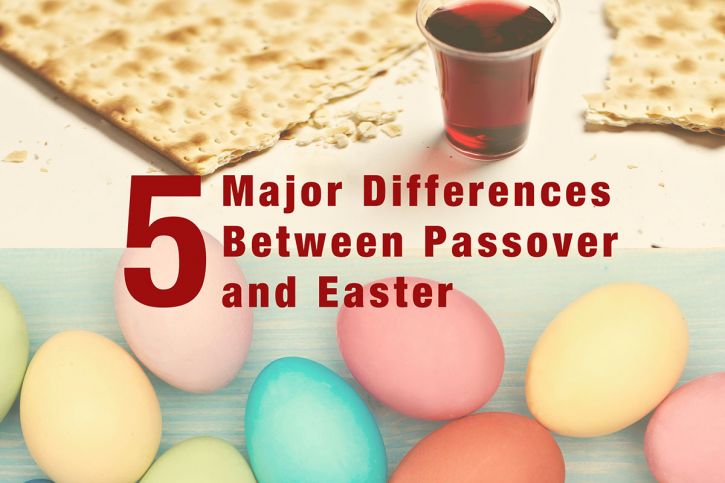 “Most consider Passover a Jewish holiday and Easter a Christian one. But when we compare the biblical Passover with Easter, we find big differences.
“Most consider Passover a Jewish holiday and Easter a Christian one. But when we compare the biblical Passover with Easter, we find big differences.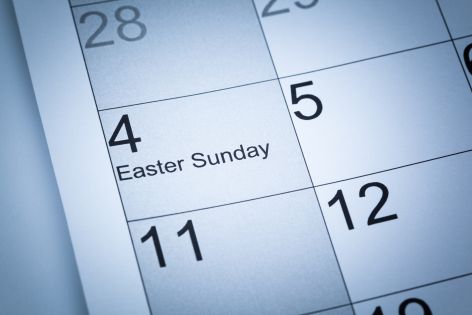 The Council of Nicaea established that Easter would always be celebrated on a Sunday and wouldn’t be tied to the phase of the moon, thus distinguishing it from the biblical Passover.
The Council of Nicaea established that Easter would always be celebrated on a Sunday and wouldn’t be tied to the phase of the moon, thus distinguishing it from the biblical Passover.
 Priscilla Du Preez/Unsplash
Priscilla Du Preez/Unsplash Image Credit:
Image Credit: 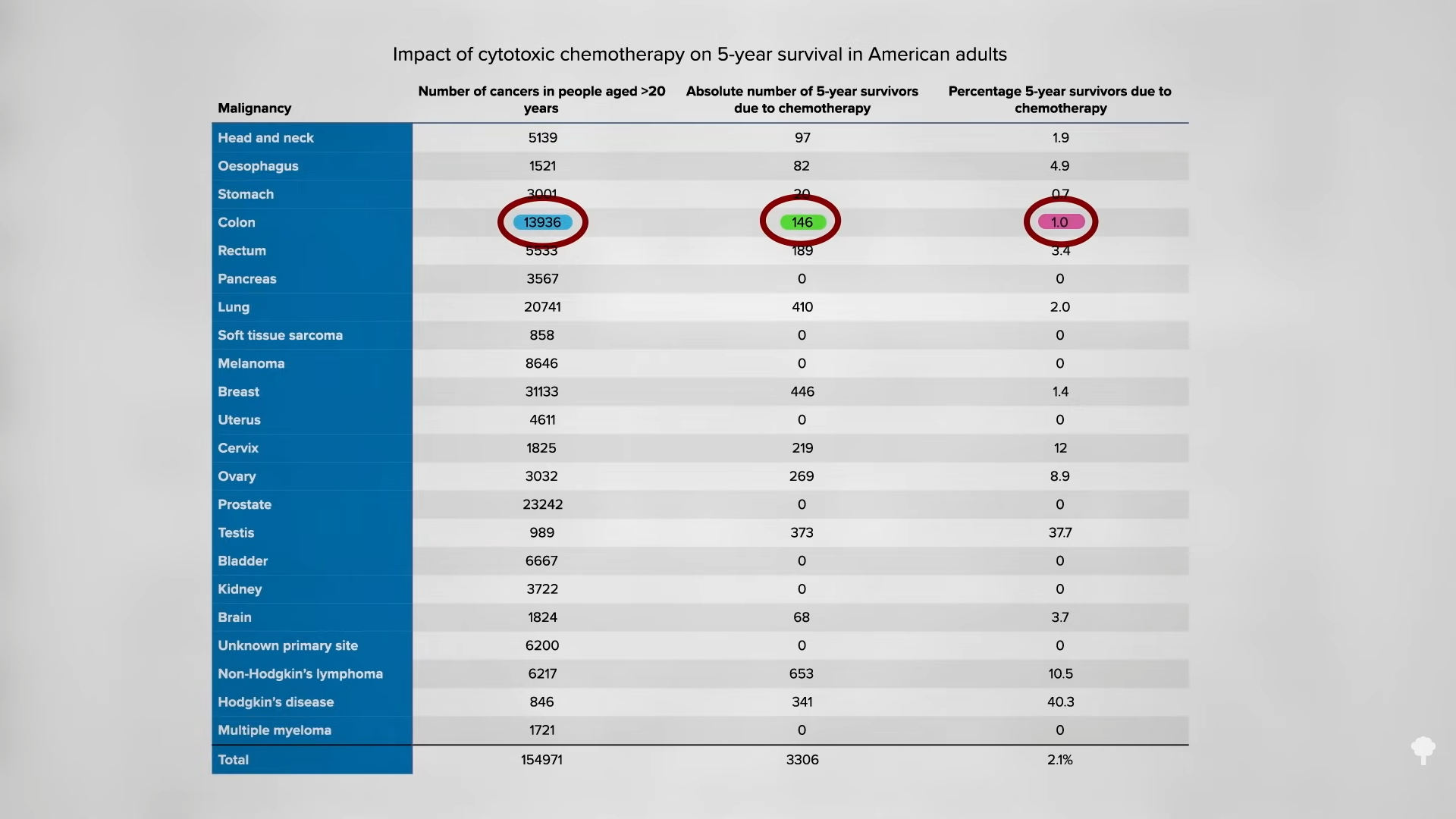
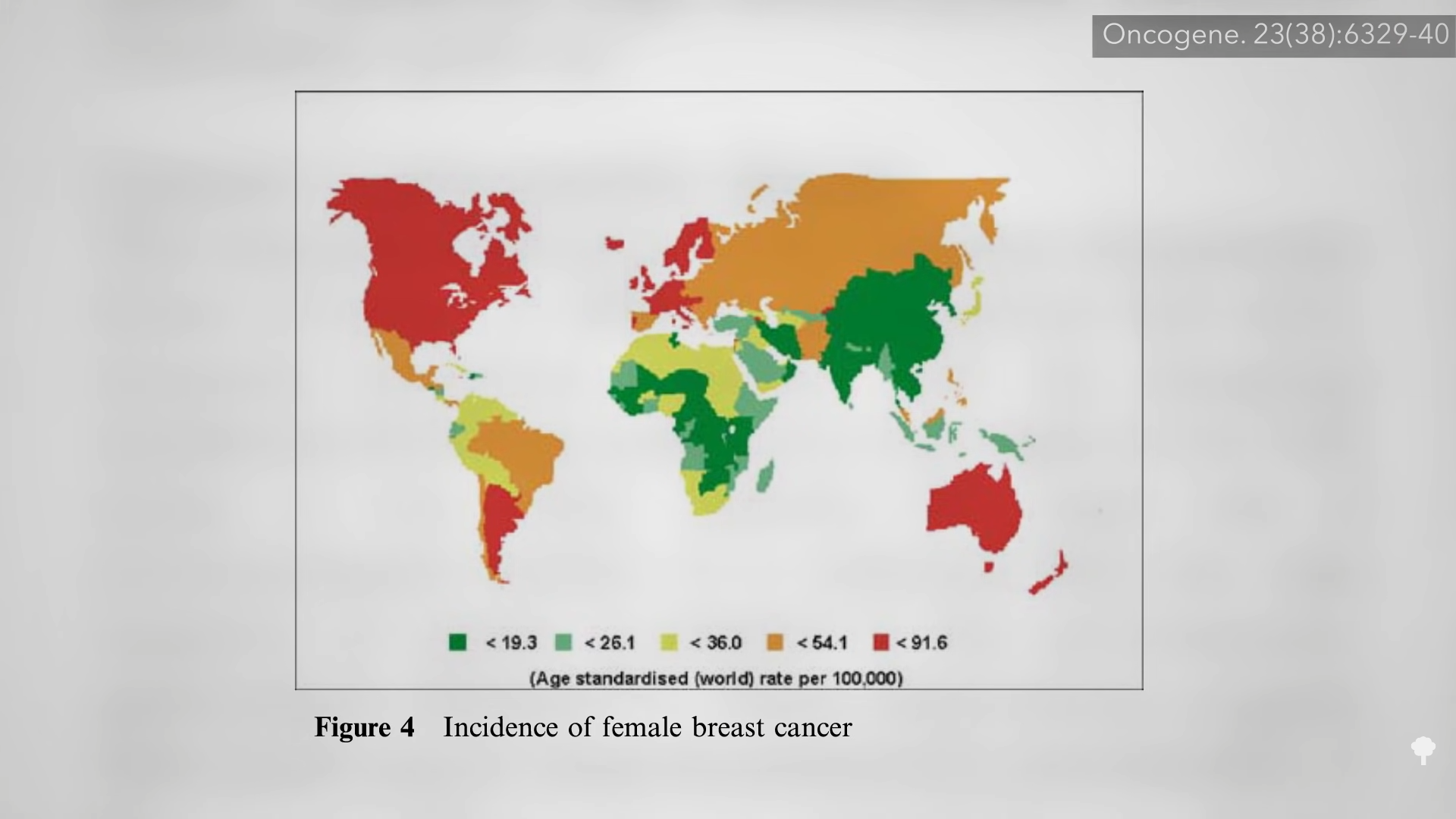
 In today’s society there is certainly no shortage of discussion about gender and what it means to be a man or a woman.
In today’s society there is certainly no shortage of discussion about gender and what it means to be a man or a woman.
 “The Bible has much to say about how to have a healthy family. Studying the common traits shared by successful families can help you strengthen your family.
“The Bible has much to say about how to have a healthy family. Studying the common traits shared by successful families can help you strengthen your family.




